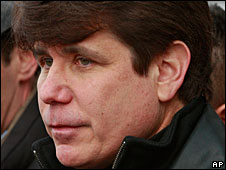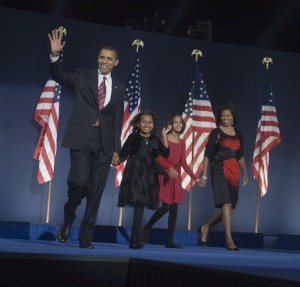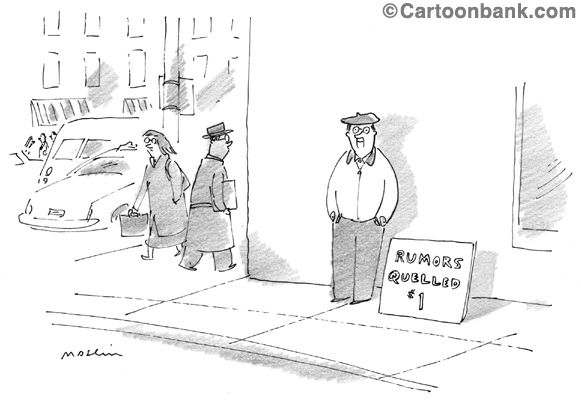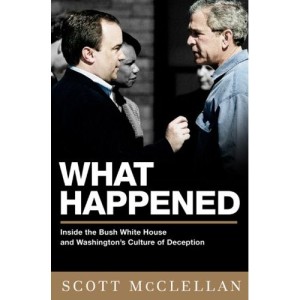It’s been a little over a week since the 2008 election came to a dramatic close with Barack Obama as our new President-elect. There’s been a lot of discussion and agreement about how the Obama campaign was significantly better at harnessing the power of social media to drive support, action, donations, votes, and eventually victory, remapping the way a campaign communicates with supporters along the way.
The Internet has certainly been used in previous political campaigns (notably Howard Dean’s). But the tools, the candidates, and the rate at which constituents consume various social media channels have evolved tremendously since 2004
The younger generation voted heavily for Obama (the NYTimes notes that “more 18-29-year-olds went to the polls this year than in any election since 1972,” with 66% voting for Obama). As noted on another blog, “this group is likely to engage in two-way conversation with staff, volunteers, and clients, rather than one-way broadcasts, the style of communication most often used by organizations now.”
The Global Financial Market Melt-Down
I’ve been at a loss about whether or what to blog about the financial crisis, for several reasons.
- First, our firm’s largest sector is finance/investments/insurance, and we’ve been up to our eyeballs, on things we can’t talk about.
- Second, the policy prescriptions for solving the problem have become embroiled in the presidential election campaign. We try very hard not to be overtly political in our work, and opining on the policy prescriptions risked getting into the presidential election scrum.
But today there’s a teachable moment, so I’ll pounce.
Read more
“Facts are stubborn things; and whatever may be our wishes, our inclinations, or the dictates of our passion, they cannot alter the state of facts and evidence.”
— John Adams, ‘Argument in Defense of the Soldiers in the Boston Massacre Trials,’ December 1770

By now, as we face the final run-up to the November election, most of us have heard more than enough about the presidential horserace. Lately, though, I can’t get a certain politically embedded mantra out of my head. So, with that as my mental soundtrack, I’ll share a few thoughts on politics and communication.
“Facts are stubborn things.” Have you heard this one?


It’s one “sticky” phrase. At least three presidents, including John Adams (see above), and one former presidential candidate (who will remain nameless) have warned us about the redeeming intransigence of facts, and legions of pundits and citizen bloggers have chimed in for the chorus during the current election cycle. Google “facts are stubborn things,” and you’ll get 71,800+ results, most of which landed in cyberspace in the last two years.
So, here’s my question: Are facts the only stubborn things?
This blog has noted that without a dollop of humility, leaders are at risk of humiliation.
Also that most crises are self-inflicted, and that the timeliness and quality of the response are more predictive of reputational harm than the severity of the underlying event.
We see all three of these principles at play in the John Edwards scandal. Read more
Countering Violent Extremism: Beyond Words
by Amy Zalman, Ph.D., EastWest Institute.
Words matter.
Words shape world views. Words provoke action and reaction, which in turn provoke more words. Getting the words right is critically important. Getting the action right is also critically important. And aligning the words and actions is even more important.
Much public diplomacy and other national and international discourse of the U.S. government in recent years has gotten it wrong.
 A new policy paper by a Dr. Amy Zalman, published by the EastWest Institute, highlights the mis-steps of the recent past and prescribes solutions for future public discourse.
A new policy paper by a Dr. Amy Zalman, published by the EastWest Institute, highlights the mis-steps of the recent past and prescribes solutions for future public discourse.
Dr. Zalman is a senior strategist at Science Applications International Corporation (SAIC), where she focuses on trans-culturally astute research for U.S. government clients. She also writes the “About Terrorism” reference website for New York Times online division About.com. She has a Ph.D. in Middle Eastern and Islamic studies from NYU and is highly proficient in Arabic. I met her when we were NYU faculty colleagues.
In reading Dr. Zalman’s assessment of and prescriptions for future public diplomacy I was struck by how much her underlying philosophy aligns deeply with Logos Institute’s own philosophy about communication as an instrument of strategy. And also how her assessment provides valuable insights not only on ways to counter extremism, but also on best practices in strategic communication across a range of disciplines. Read more
Senator Barack Obama yesterday announced an effort to deal with rumors in a timely way, to prevent them from taking hold and throwing his campaign off balance.
He’s right to be so concerned. Rumors can throw a presidential campaign off its game, and provide adversaries, critics, and opponents with a first-mover advantage that’s hard to beat. The last 20 years teach a great deal about the importance of effective rumor control.
The Secret of Quick Response
What Happened: Inside the Bush White House and Washington’s Culture of Deception, by Scott McClellan
Almost 20 years ago I was head of communication at a major company, and I spent much of every day speaking with reporters. The deal I had with the CEO was straightforward: “I won’t lie to you; I won’t lie for you; you can’t lie to me.”
At one point my boss lied to me, hoping I would pass the lie on to the press. I called him on it, and he promised not to do it again. Then he did it again. I unknowingly passed the lie on to reporters. They found out, and called me on it. So I quit.
Leaving my job wasn’t a hard decision, even though it was a painful one. Among other things, my wife was pregnant with our first child. And I didn’t have another job to go to. But it was one of the best decisions I’ve made.
Then as now I taught communication ethics in a graduate program at NYU. And one of the perennial questions of communication ethics is: When is it necessary to quit? I don’t suggest that there are easy answers. Every circumstance is a bit different. And it’s a highly personal choice. But there are consequences to making the wrong choice. And we all have to own the consequences of our choices.
 Comes now Scott McClellan, in a tell-all book about his time as press secretary for President George W. Bush, that will be published next week. Read more
Comes now Scott McClellan, in a tell-all book about his time as press secretary for President George W. Bush, that will be published next week. Read more
 The 1960 televised debate between Vice President Richard M. Nixon and Senator John F. Kennedy was a turning point. It forever changed politics. The power of the visual image to emphasize sizzle over steak was initially a surprise to political scientists. Kennedy’s win, attributable to his superior performance in the debate, wasn’t supposed to happen.
The 1960 televised debate between Vice President Richard M. Nixon and Senator John F. Kennedy was a turning point. It forever changed politics. The power of the visual image to emphasize sizzle over steak was initially a surprise to political scientists. Kennedy’s win, attributable to his superior performance in the debate, wasn’t supposed to happen.
And TV also changed the way Americans experienced the world. Suddenly, TV was the medium of social cohesion.
 We watched as Walter Cronkite wiped a tear and announced to a stunned nation that President Kennedy had died.
We watched as Walter Cronkite wiped a tear and announced to a stunned nation that President Kennedy had died.

 We watched as Cronkite provided live commentary on the moon landing. And we watched as he pronounced the war in Vietnam unwinable. Vietnam became the first “living room war,” playing out on our TVs.
We watched as Cronkite provided live commentary on the moon landing. And we watched as he pronounced the war in Vietnam unwinable. Vietnam became the first “living room war,” playing out on our TVs.
I believe that history will look back at the 2008 election and declare that it too represents a turning point. Read more

In this week’s New Yorker Hendrik Hertzberg sums up the reasons that Senator Hillary Clinton’s policy arguments aren’t impeding the momentum that is building for her Democratic Party rival, Senator Barack Obama. Hertzberg notes:
An argument is no match for an aura.
I have been thinking about Hertzberg’s insight this week, and noting both how aura v. argument was predictive in recent presidential elections, and how it holds important lessons beyond politics, for corporations and other complex organizations.
Politics and Framing





